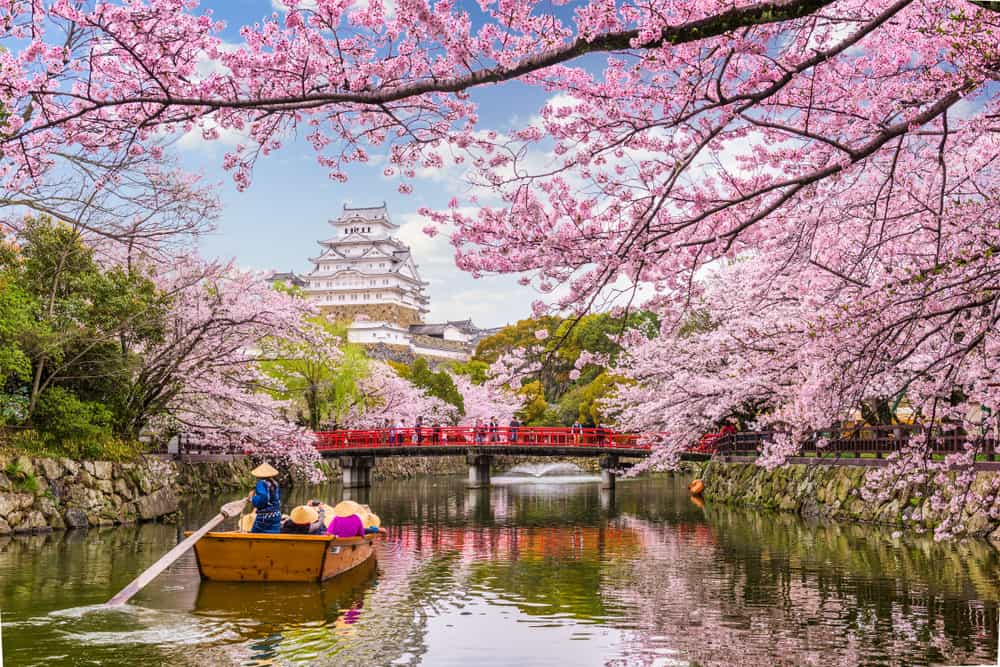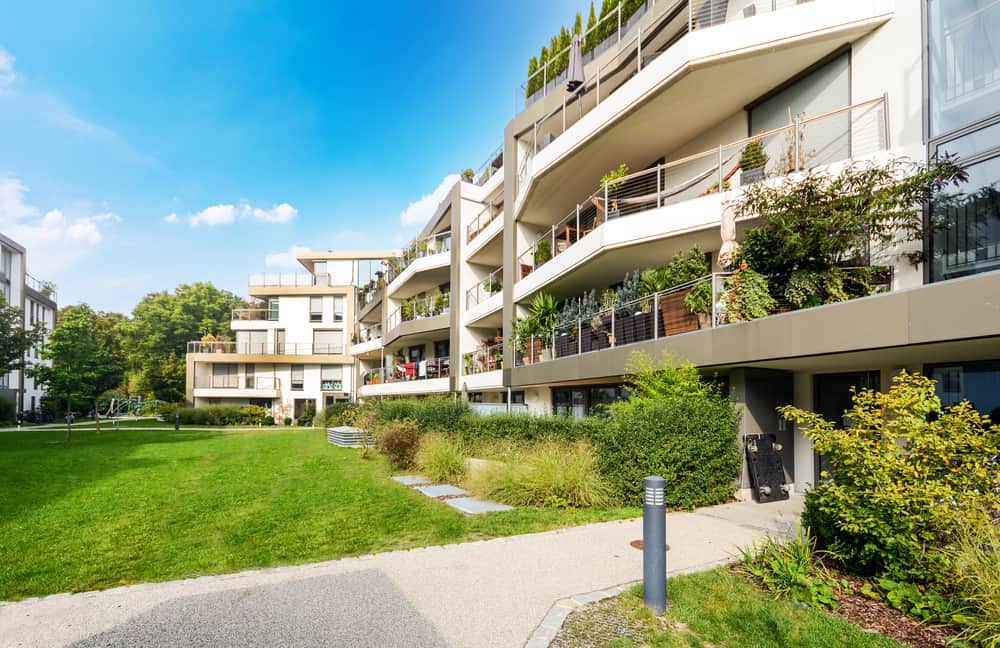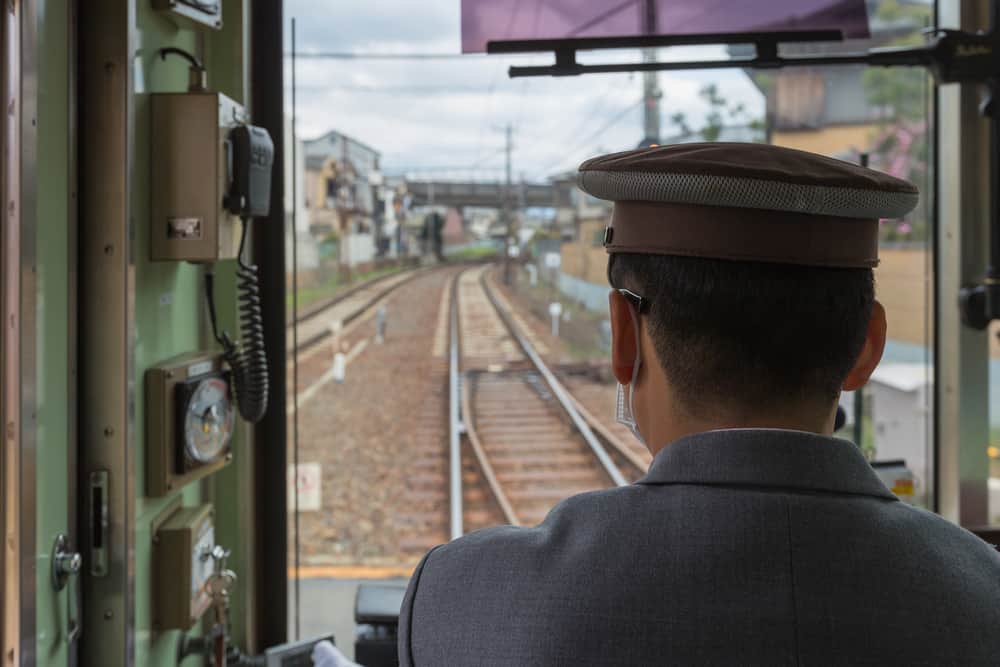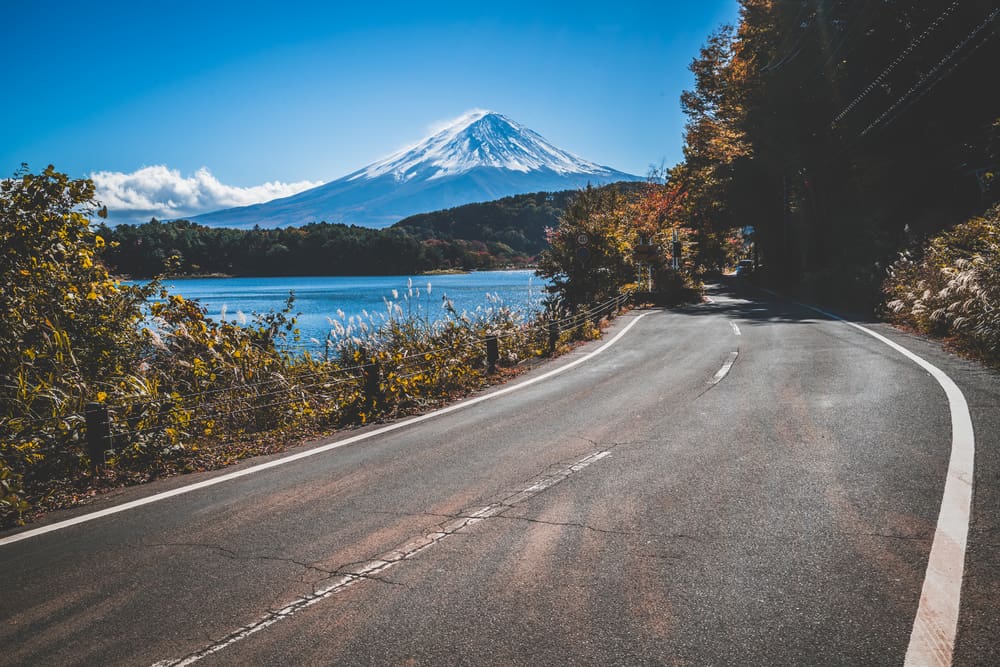
Japan, the “Land of the Rising Sun”, is a fascinating country which attracts millions of visitors every year. It’s one of the world’s oldest civilisations with a wealth and depth of history and tradition that’s the envy of many countries. Japan’s varied landscape from oceans to mountains, its various UNESCO world heritage sites and the welcome from the Japanese people make it a country to put on your bucket list.
If you are considering moving to Japan, the various costs listed below will help you make an informed decision on what costs are involved when moving and living in this part of the world.
Quick Japan Facts:
- Population: Japan’s population is 125,598,560 (2022 estimate)
- Official Language:Standard Japanese is the main national language of Japan but there are many regional languages spoken in Japan which are indigenous to the island. Some of the major indigenous languages of Japan are Ainu, Amami-Oshima, Miyako, Kunigami, Okinawan, Yonaguni, and many more.
- GDP Per Capita:$41,780 USD (2022 estimate)
- Volcanos: There are 110 active volcanos in Japan.
- Currency: Japanese yen (¥/JPY). The value of JPY as of 2022, US$0.0068, £0.0061, €0.0070, CA$0.0094, and AU$0.011.
1. Moving and Shipping Costs to Japan
Below are sample container shipping costs to Japan from around the world.
2. Japan Housing Costs

Japan’s major cities are expensive to live in, but rural areas and smaller towns are extremely affordable. Accommodation prices in Tokyo are high but, because of the affordability of property outside the major cities, many Japanese buy holiday homes in other areas of the country.
Monthly Rental Prices in Japan
- 1 bedroom apartment in City Centre: JPY 60,000.00–200,000.00
- 1 bedroom apartment outside the City Centre: JPY 40,000.00–125,000.00
- 3-bedroom apartment in City Centre: JPY 100,000.00–475,000.00
- 3-bedroom apartment outside the City Centre: JPY 70,000.00–250,000.00
- Price per square metre to buy in City Centre JPY 500,000.00–1,569,184.39
- Price per square metre (10.7 square feet) to buy outside the city: 300,000.00–1,000,000.0
Source: NUMBEO
Japan Housing Cost Comparison
This is how rents in Japan compare with other countries around the globe.
United Kingdom is 46.48% more expensive
United States is 147.80% more expensive
Australia is 72.88% more expensive
Singapore is 255.50% more expensive
France is 24.79% more expensive
UAE is 79.59% more expensive
Spain is 5.38% more expensive
Source: NUMBEO
How to Save on Housing Costs
- Share an apartment or house. Find your perfect room or flatmate through these sites – Erasmusu, iroommates, Tokyo Roommates, Cheap Share House, and Share House in Tokyo.
- Different areas – different prices. Japan’s major cities, especially Tokyo, are expensive to live in. Cheaper and affordable housing can be found in areas like Kawasaki and Kyoto, and Fukuoka and Tsushima city. Have a look at the following sites for information on affordable areas to live in Japan: Money Inc, My Funky Travel, Dear Japanese and Captions Quote.
3. Japan Food, Grocery and Restaurant Costs
Japan is a developed country, and its economy is fast growing. Cities in Japan have an excellent selection of restaurants serving food from all over the world. Japanese cuisine includes a variety of seafood, served either cooked or raw. Sushi is eaten throughout the world but it’s only in Japan that you’ll experience true sushi.
- Inexpensive Restaurant: JPY560 – JPY1,462.13
- Domestic beer: JPY250 – JPY800
- Coke/Pepsi: JPY110 – JPY300
- 1L of milk: JPY145 – JPY250
- Loaf of Bread: JPY120 – JPY450
- 12 Eggs: JPY60 – JPY350
- 1kg Chicken Fillets: JPY400 – JPY1,500
- 1kg Beef: JPY1,200 – JPY4,980
- 1kg Apples: JPY69 – JPY1,500
- 1kg White Rice: JPY300 – JPY1,000
Source: NUMBEO
The below is how food and restaurants prices compare with other major countries in the world.
- UK restaurants are 20% more expensive and groceries are 27.18% cheaper than in Japan.
- United States restaurants are 68% more expensive and groceries are 17.98% more expensive than in Japan.
- Australian restaurants are 00% more expensive and groceries are 9.97% more expensive than in Japan.
- Singapore restaurants are 65% more expensive and groceries are 12.29% more expensive than in Japan.
- French restaurants are 22% more expensive and groceries are 1.23% cheaper than in Japan.
- UAE restaurants are 07% more expensive and groceries are 21.30% cheaper than in Japan.
- Spanish restaurants are 62% more expensive and groceries are 38.09% cheaper than in Japan.
Source: NUMBEO
Bonus Tips for Cheaper Food, Restaurants and Groceries
- Know your supermarkets: Japan has the usual supermarket chains as well as independently owned grocery stores. Supermarkets and local convenience stores sell a variety of readymade meals which are excellent value and of a high quality. These stores generally mark down their bento at the end of the day. There are also farmers’ markets which are fascinating to wander round. Aeon Supermarkets are found in every part of Japan and sell a wide variety of foods at reasonable prices. All Japanese supermarkets sell high quality food and they pride themselves on cleanliness and good service. Have a look at the following sites for in depth information on supermarkets in Japan: Coto Academy, Japan Travel, Roam the Gnome and Japan Guide.
- Find Cheap Eats: Keep an eye on the local papers and flyers to find cheap eats. Have a look at the following sites for ideas on where to go for an affordable meal: Sushizanmai, Uobei, Sanuki Udon Hanamaru, Ikinari Steak, and Hotto Motto.
4. Japan Alcohol Costs
Drinking is part of daily life and has become accepted and important in Japan. Alcohol plays a significant role in traditional customs, religious rituals as well as businesses in the country. However, Japanese laws restrict alcohol and smoking for individuals under the age of 20.
- Bottle of imported beer at a restaurant/pub: JPY350 – JPY950
- Pint (0.5L) domestic beer at a restaurant/pub: JPY250 – JPY800
- Pint (0.5L) domestic beer at a supermarket: JPY190 – JPY450
- Bottle of imported beer at a supermarket: JPY240 – JPY500
- Mid-range bottle of wine at a supermarket: JPY598 – JPY2,000
Source: NUMBEO
How to drink for less in Japan
- Keep an eye on the locals, especially when they go to the “izakaya” which is similar to a gastropub. It is primarily meant for cheap eats but you can also find an option here to drink for 90 minutes which is called “nomihodai”. Nomihodai is also available in many restaurants. Nomihodai costs between ¥1,500 to ¥2,500 ($15-$25).
- Have a look at the following sites for ideas of where to go to drink for less: Guidable, Nihon Scope and Travel Dudes.
5. Japan Transportation Fares

The Japanese primarily depend upon rail travel which is faster and more frequent. The Japanese railway system is excellent and the famous bullet trains connect the northern and southern regions of Japan. Internal flights are also frequent and reasonably priced. Japan also has a great road system with buses and taxis.
Here are some example ticket costs.
- One-way ticket (Local transport)- JPY168 – JPY350
- Monthly Pass (Regular Price) – JPY6,000 – JPY18,000
- Taxi start (normal tariff) – JPY450 –JPY750
- Taxi 1km (normal tariff) – JPY250 – JPY540
Source: NUMBEO
How to save money on public transport
- JRP or Japan Rail Pass will save you money. You can get a 7 day, 14 day or 21 day standard or green pass. The green pass is more expensive than the standard pass.
- Buy a JR Regional Pass for travelling a long distances.
- Combine the day passes with JRP or JR Regional passes for intercity travel. Tokyo Metro pass, especially the Tokyo Free Kippu one day pass, can be the best option if you are living in Tokyo.
- Another option is the “Tokunani Pass” or the Tokyo Metropolitan District Pass.
6. Cost of Internet in Japan
Japan has high-quality and high-speed internet services which is used by 90% of the population and 100% by businesses. Smartphone internet access is the most popular medium in Japan. Japan has imposed very little or no restrictions on internet content. Japan has 116.8million internet users and ranks 7th in the world.
- Wi-FiRental– ¥5,000 /Mo for 187.5 Mbps
- Mobal Wifi– ¥4,980/3Mo for 150 Mbps
7. Cost of Clothing, Personal Items, Gym and Leisure
The climate varies from warm tropical rainforests in the southern part of Japan to a humid cool continental climate in its northern regions. Besides this, most regions of Japan have a humid subtropical climate resulting in 4 distinct seasons. Summer in Japan is from June to September and the rainy season is from mid-June to mid-July. Thunderstorms and typhoons are common between July and October. The winter in Japan brings freezing temperatures with heavy snowfalls, especially in the central mountain regions.
Below are some clothing prices, along with other useful prices.
- Pair of Jeans (Levis 501 Or Similar): JPY2,500 – JPY10,000
- Summer Dress: JPY2,000 – JPY8,000
- Running Shoes (Trainers): JPY 5,000 – JPY12,000
- Business Shoes: JPY6,000 – JPY22,000
- Gym membership: JPY5,000 – JPY12,000
- Movie (cinema) ticket: JPY1,500 – JPY2,200
Source: NUMBEO
8. Cost of Owning a Car and Driving a Car in Japan

The Japanese are exceptionally fond of cars and over 69% of people in Japan own cars. You can drive in Japan on an International driving licence for 12 months after which you need to get a Japanese driving licence from the relevant authorities. Buying a car isn’t that complicated but you do have to prove that you have parking space before you’re allowed to buy and register your vehicle.
Here are some other sample costs of owning and operating a car in Japan:
- Volkswagen Golf: JPY2,500,000 – JPY3,500,000
- 1 litre (¼ gallon) of gas (petrol): JPY135 -JPY171
- Other fees (if any):You must pay ¥120,000 for the roadworthiness tax, plus 5% of the cost of the car. Besides this, there are other taxes like tonnage tax of around ¥75,000 along with a fee of ¥10,00 to ¥25,000 for the name change
Source: NUMBEO, Work in Japan
Ways to save money driving in Japan
- Car sharing or pooling is the best option to save money. Try ikeas for carsharing and app-based ride-hailing like DiDi, MOV, Japan Taxi, and 3 more apps through MATCHA.
- Taxis are better for short distance-travel, especially if you are going to have to park all day. Try Japan Taxi App where Uber is also a stakeholder.
Need your car/vehicle moved to Japan? Then read our guide to Car Transport & Vehicle Shipping
9. Taxes in Japan
The tax for non-residents in Japan is a flat rate of 20.42% on your Japanese source of income. For more information visit this website – TaxSummaries.
Property tax is 1.7% including city planning tax. For details refer TaxSummaries. VAT in Japan is 8% for goods and services. Visit TaxSammaries for details.
10. Flight Costs from Japan
If you do make the move to Japan, here’s approximately how much it will cost to fly to other major world cities based on the lowest, one-way fares from Skyscanner late 2022:
- London: JPY66,740
- Paris: JPY62,496
- New York: JPY7,330
- Los Angeles: JPY54,230
- Dubai: JPY58,240
- Sydney: JPY61,601
- Melbourne: JPY65,040
- Cape Town: JPY87,870
- Hong Kong: JPY24,507
Other Japan Relocation Tips

The above prices will have given you a good idea of the cost of living in Japan. Perhaps, the following extra tips will make your move go more smoothly.
11. Relocating to Japan Alone
Moving is stressful but moving on your own can be exceptionally difficult. However, the Japanese people will do everything in their power to help you settle into your new life quickly. Here are a few tips about settling in Japan.
- Meetups:Connect with various groups through Meetup to join in activities from mountaineering to sushi lessons.
- Attend local events: Japanese love gatherings and celebrations. So, there are numerous celebrations, events and festivals of different types organised throughout the year. Have a look at these websites to learn more about them – Cultural Day in Japan, Shuki Taisai Grand Autumn Festival, Knotfest Japan, Yuki Matsuri or Sapporo Snow Festival, and Kanamara Masturi.
12. Moving to Japan with a Family
Moving to a different country with family can be challenging but the Japanese will welcome you and your children and help you settle in quickly. So, consider the following if you are moving to Japan with your family.
- New parents (or parents to be):Check out TMG-Tokyo Mothers’ Group, Chiba Peanuts Multicultural Playgroup, Tokyo Mothers Group, and International Mothers in Yokohama so you can join groups, attend courses and generally make friends with new parents or parent to be.
- Live in a family-friendly area:Living in family-friendly neighbourhood is obviously one the first priorities. Places that are known to family-friendly in Japan, especially for expats are Shibuya-ku, Minato-ku of Central Tokyo, Hiroo in Shibuya, and Roppongi, Aoyama, and Akasaka in Minato district. Have a look at the following sites for a more detailed look at family-friendly areas in Japan: Village House, Apts, Japan Talk and KSE Moving.
- Find things to do with the kids:Japan has lots for children to do. Have a look at the following website for inspiration – Disney Land & Disney Sea, Tokyo with Kids, Japan with Kids, and All Japan Tours.
13. Moving to Japan for Work
Moving to a new country for work is one of the most common reasons people choose to move. While it is possible to move without a job, it makes sense to ensure there are jobs in your field before you make the move.
In the past, Japan didn’t encourage foreigners to work in Japan, this is slowly changing as more and more foreign companies set up offices in Japan. There are job opportunities in all sectors, but standards are extremely high, so you need to be highly qualified and experienced in your chosen career.
Below are a few things to consider when moving to Japan for work:
- Salary:Salaries are generally not that high in Japan compared with other first world countries but they are catching up. People working in IT seem to score the highest salaries. Learn more about salaries in Japan at timedoctor and Salary Explorer.
- How to find work: The most common and easiest way to find jobs in Japan is by searching online. Have a look at the following sites for available jobs – Japanese Pod, Jobs in Japan, Work Japan, and Go Abroad. You may also want to Google recruiters in your industry, as they can often help land you some initial interviews as well.
14. Moving to Japan from Australia
There are around 9,138 non-resident Australians living in Japan. Japan has a good bilateral diplomatic relationship with Australia. If you are thinking of moving from Australia to Japan, here are a few things to consider.
- Size comparison:Australia is 20.6 times bigger than Japan. On the other hand, Japan is bigger in terms of population. Japan’s population is 125,682,000 whereas the population of Australia is 25,739,000.
- Join expat groups: Meetups, Internations, and Facebook are ways to meet other Australia in Japan.
15. Moving to Japan from Canada
There are around 12,000 Canadians living in Japan. If you’re moving from Canada to Japan below are a few things to consider.
- Size:Canada is 26 times bigger than Japan. However, its population is smaller. Canada has a population of 38,246,000 whereas Japan’s population is 125,682,000.
- Expat groups:Connecting with fellow Canadians makes settling in easier. Link up through sites such as Internations and Meetup.
16. Moving to Japan from the United Kingdom
There are 16,568 people from the UK living in Japan. So, if you want to join them, here are a few bonus tips:
- Size: Japan is 1.6 times bigger than the UK. The population of Japan is 125,682,000 and the UK is 67,327,000.
- Expat groups:Connect with people from the UK through Internations and Meetup
Hopefully, the tips and costs above are helpful. If want to get started pricing out how much it will cost you to move to Japan you can start by comparing moving quotes here.